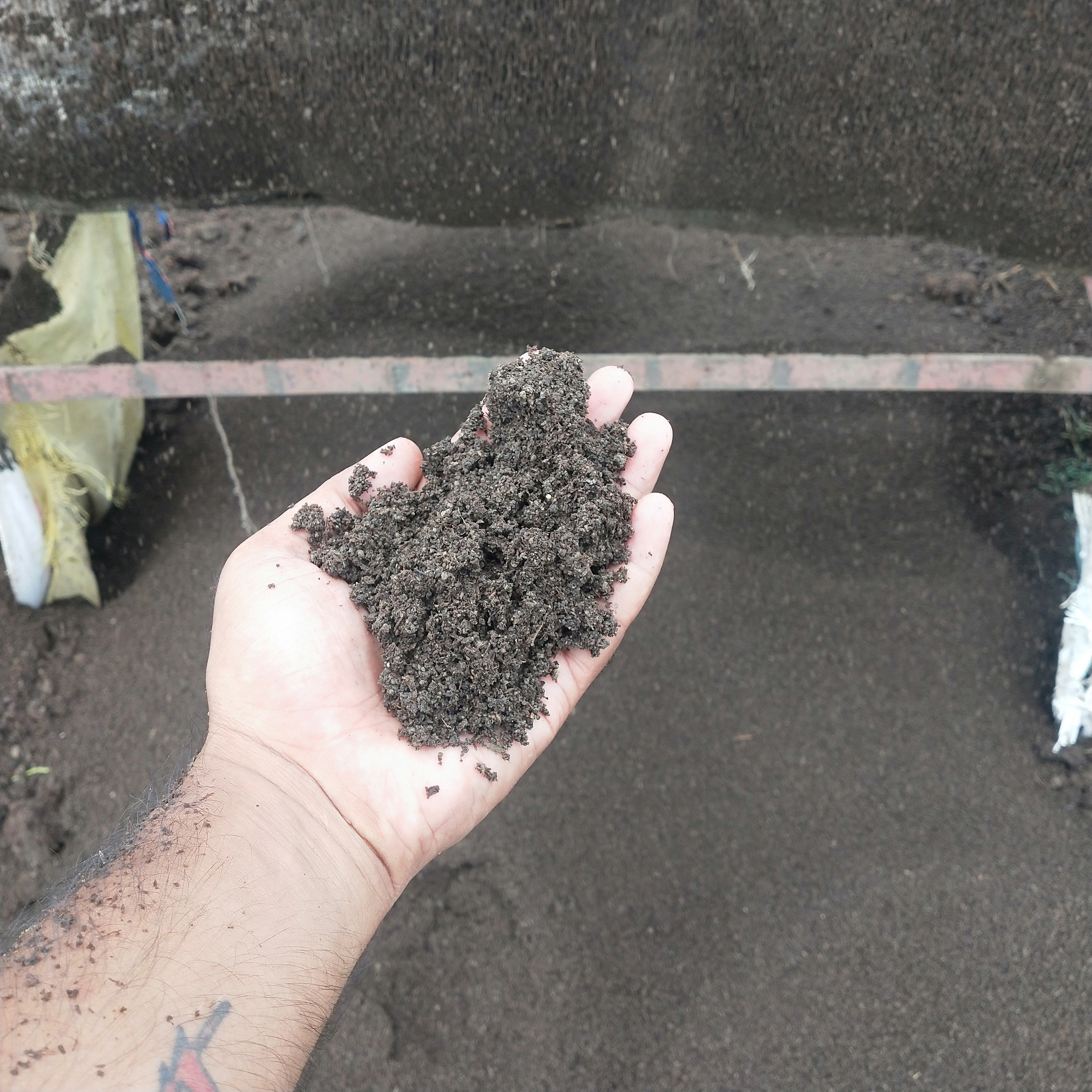
Vermicompost
50 Kg unbranded Bag
₹300.00₹200.00
Vermicompost is a nutrient-rich organic fertilizer and soil conditioner produced through the process of vermicomposting, which involves the use of earthworms to decompose organic matter such as kitchen scraps, garden waste, and manure.
Usage of Vermicompost:
Vermicompost is highly beneficial for soil and plant health due to its rich nutrient content and microbial activity. Here are some common uses:
1. Soil Amendment: Vermicompost improves soil structure, enhances water retention, and provides essential nutrients like nitrogen, phosphorus, and potassium (N-P-K). It also increases beneficial microbial populations in the soil.
2. Garden Soil Enrichment: Incorporating vermicompost into garden beds or potting mixes can boost plant growth and overall productivity. It helps plants resist diseases and pests while promoting healthy root development.
3. Seed Starting: Vermicompost can be used as a component in seed starting or germination mixtures. Its gentle nutrient release provides a favorable environment for young seedlings.
4. Mulch: As a mulch, vermicompost helps regulate soil temperature, reduce weed growth, and conserve moisture.
5. Compost Tea: Vermicompost can be used to make compost tea, which is a liquid fertilizer and soil conditioner. Dilute vermicompost in water, let it steep, and then apply it to plants as a foliar spray or soil drench.
6. Indoor Plants: Vermicompost can be added to indoor potted plants to improve soil quality and reduce the need for synthetic fertilizers.
7. Lawn Care: Topdressing lawns with a thin layer of vermicompost can improve grass health and reduce the need for chemical fertilizers.
8. Vegetable and Fruit Gardens: Vermicompost is particularly beneficial for growing vegetables and fruit trees, as it enriches the soil with nutrients and promotes the development of nutrient-rich produce.
When using vermicompost, it's essential to follow application guidelines and not overuse it, as it can be potent. Additionally, vermicompost is an excellent component of organic and sustainable gardening and farming practices, contributing to healthier soils and more environmentally friendly agriculture.
